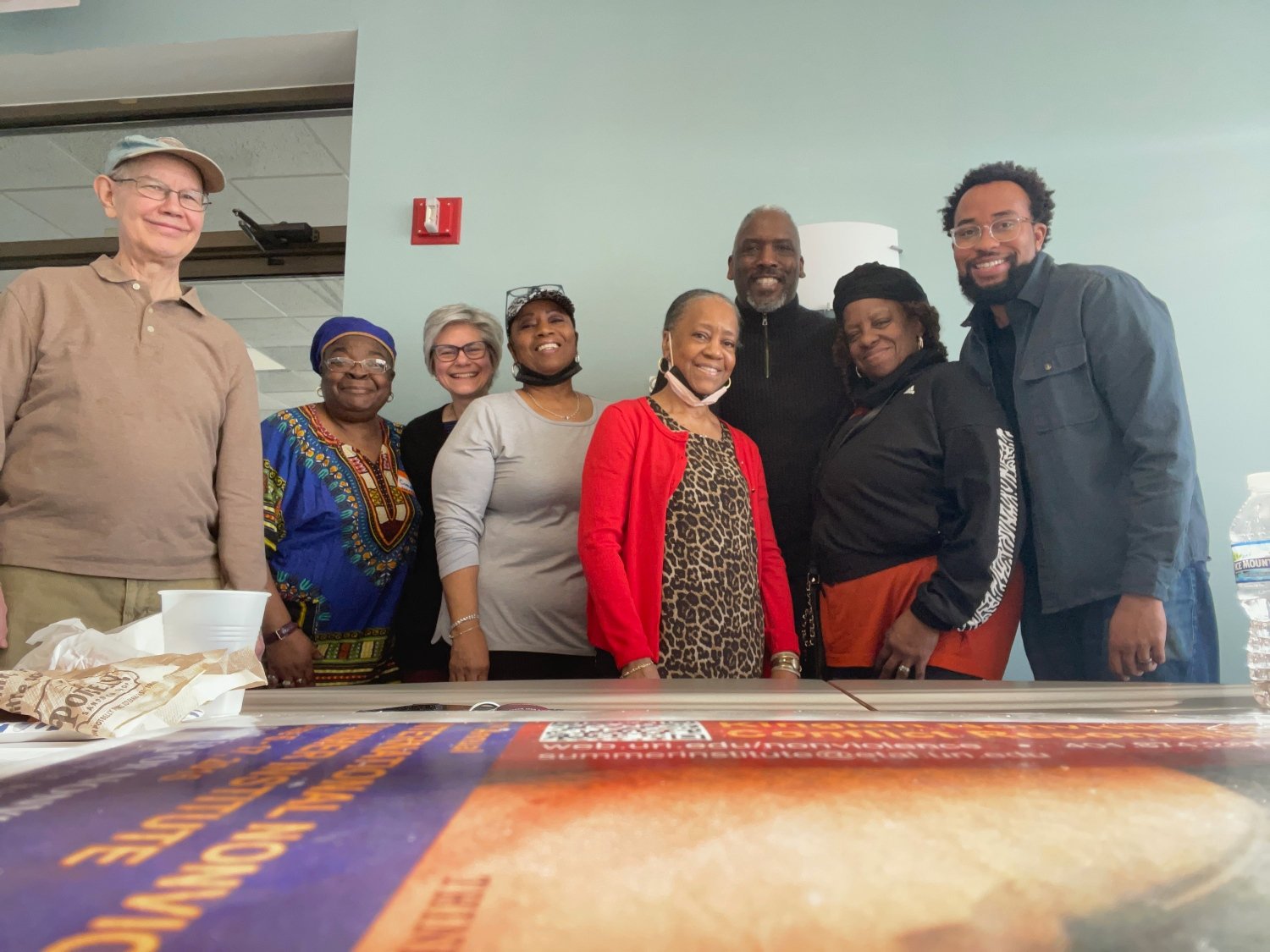Advocacy & Neighborhood Engagement
H.O.M.E. engages in collaborative advocacy with and for Chicago’s growing population of low-income older people, including people of color and those identifying as LGBTQ+. H.O.M.E.'s powerful direct service work over the last four decades bolsters our voice for housing equity.
H.O.M.E. leads Fix Our Homes Illinois, a diverse coalition focused on increasing home-repair resources for older homeowners in the state. To learn more, visit the Fix Our Homes Illinois website.

H.O.M.E’s advocacy and neighborhood engagement is grounded in three core beliefs:
Older people are agents of change.
Direct service and housing provision strengthen H.O.M.E.’s advocacy.
Social and political realities affect older people’s lives.
H.O.M.E. embodies and advances an ethos that society should fully integrate older people and treat them with great respect -- a radical notion in a culture that privileges populations based on age, race, income, gender identity, and ability.
Because of its deep, long standing connections to seniors, H.O.M.E. has regularly, if informally, leveraged its experience and relationships to help advance systemic changes to improve housing conditions and policies for low-income seniors in Chicago.
As formalized in its 2022-25 Strategic Plan, H.O.M.E. is committed to expanding its neighborhood engagement and advocacy. In 2022, the organization established a Community Advisory Council, a direct result of H.O.M.E.’s “listen & learn” initiative, through which the staff and Board conducted interviews with older adults served by H.O.M.E. on the south and west sides. Because seniors expressed concern during these interviews about the plight of young people, H.O.M.E. is exploring community partnerships to provide young adults with skills training to complete home repairs for seniors. The Community Advisory Council meets regularly to help inform H.O.M.E.’s programs and provide a platform where seniors can express their views and concerns.
Fix Our Homes Illinois is a coalition of organizations committed to securing more public funding and personnel for home repairs for low-income homeowners. The coalition is convened by H.O.M.E. in Chicago and includes AARP Illinois, Access Living, Chicago Bungalow Association, the DePaul Institute for Housing Studies, Faith 1 Network, Health & Medicine Policy Research Group, Housing Action Illinois, Illinois Aging Together, Illinois Anti-Foreclosure Coalition (IAFC), Light Up Lawndale, Mothers Opposed to Violence Everywhere (MOVE), Rush University Medical Center, Southwest Organizing Project, Teamwork Englewood, and the Woodstock Institute.
H.O.M.E. launched an advocacy campaign in 2023 for more home repair services and funds. Fix Our Homes Illinois, convened by H.O.M.E., currently includes community partners, housing advocates, foundation representatives, and researchers. The working group recently hosted a presentation by Robin Bartram, who published a Chicago Tribune editorial, “Illinois needs a different kind of assistance for homeowners: Home repairs.” Bartram suggests replicating Pennsylvania’s Whole-Home Repairs Program, which “creates a one-stop shop for residents to repair, upgrade and adapt their homes with grants up to $50,000, while simultaneously building out a local workforce and adding new family-sustaining jobs in a growing field.” The group is planning to draft a similar policy for Illinois, raise awareness of the need for more home repair resources, and educate older homeowners about how to access affordable repair services.
Read our Case Statement, "Housing Justice Begins in the Homes of Seniors"
The campaign held a kickoff Town Hall on Home Repairs at Morning Star Baptist Church on the south side of Chicago on Saturday, December 9, 2023. See the WGN news clip below:
Increased resources for home repairs could:
Enable seniors to age in their own homes, the overwhelming desire of most.
Preserve homeownership for a population at risk of displacement.
Improve physical and mental health.
Close the racial wealth gap, as the Woodstock Institute has found that maintaining one’s home is more consequential than expanding homeownership generally.
Create quality skilled jobs for younger adults in home repair.
Promote social justice by ensuring that older people remain integrated community members.
Preserve and fully utilize the existing housing stock.
Build on a philosophy of asset-based community development.
Advocacy at H.O.M.E.
Listen to H.O.M.E.’s Executive Director Gail Schechter share more on how H.O.M.E. is working towards creating a more liveable and age-friendly Chicago.
Bridging Health, Housing, and Generations
As a prominent leader in the intergenerational housing movement, H.O.M.E. advised Harvard University’s Joint Institute on Housing Studies as they wrote a HUD report on intergenerational housing. Check out the video presentation of Bridging Health, Housing, and Generations: What the US Might Learn from Germany’s Multigenerational Housing Initiative Confirmation from the Harvard Joint Center for Housing Studies.


